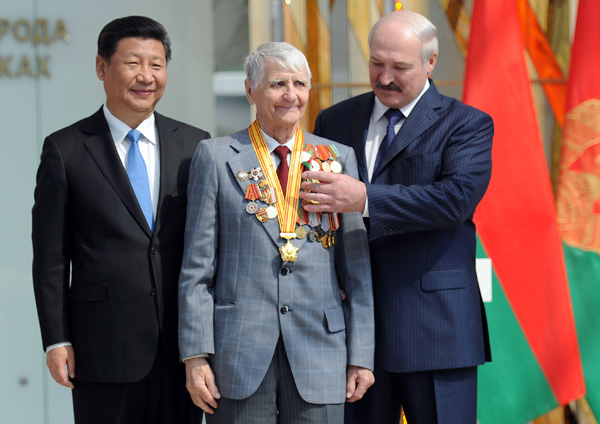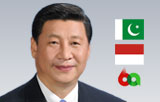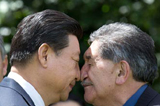Xi's 3-nation trip highlights China's resolve to safeguard world peace
Updated: 2015-05-13 02:05
(Xinhua)
Comments Print Mail Large Medium Small
Jointly building new-type int'l ties
During the trip, Xi repeated his appeal for constructing a new type of international relations centered on win-win cooperation, which is a response to the trend of our times and an answer to a major issue of common concern to the international community, Wang said.
Xi went further to point out that "we are strong if united but weak if isolated." The bitter lessons drawn from WWII, the president said, teach us that the Law of the Jungle, the strong preying on the weak, or warlike or hegemonic policies, or winner-take-all or zero-sum mindsets will not benefit coexistence, peace and development for all mankind.
Expounding the core message of China's proposal for building a new type of international relations centered on win-win cooperation, Xi stressed the need to safeguard the purposes and principals of the UN Charter, and defend the basic international rules that advocate non-interference of domestic affairs of the nations, and respect their sovereignty, independence and territorial integrity.
The Chinese president also underscored the importance of backing the United Nations and the Security Council to play a principle role in maintaining world peace, the need to resort to dialogue and cooperation rather than confrontation, and the imperative to achieve win-win cooperation rather than the gain of one side.
The above views were hailed by the nations visited by Xi during the trip. A joint statement signed by Chinese and Russian presidents urges nations of the world to walk on a basic foreign policy line that backs a concept of peaceful development and win-win cooperation, and promotes multi-polarization of the world as well as democraztization and legalization of international relations.
In Xi's separate talks with Kazakh and Belarusian presidents, a consensus was reached to work harder to build a community of common destiny and interwined interests with sharper strategic vision and firmer political will, according to Wang.







